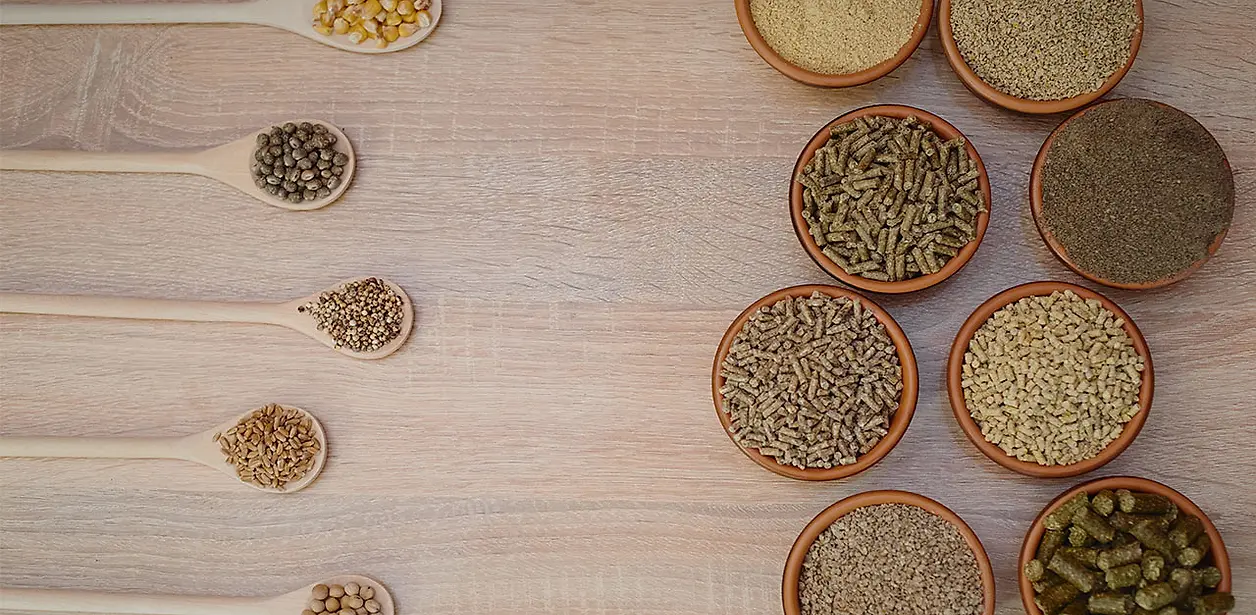ISO 168781 Moisture Profiling in Camel Feed
The ISO 168781 standard provides a robust framework for moisture profiling in camel feed, ensuring accurate and reliable measurement of moisture content at various points within the feed matrix. This service is crucial for maintaining quality standards that directly impact the health and productivity of camels, which are vital to many arid regions.
The standard defines moisture content as the mass of water present in a given sample relative to its total dry matter content. Accurate measurement of this parameter is essential for several reasons:
- Prevents spoilage by minimizing microbial growth,
- Promotes optimal nutrient distribution,
- Ensures consistency across batches,
- Aids in identifying adulteration or contamination.
The methodology outlined in ISO 168781 involves drying samples under controlled conditions, followed by gravimetric determination of the moisture content. This process is conducted at multiple points within a single sample to capture variability and ensure comprehensive analysis.
Camel feed quality directly influences camel health, which can have significant economic implications for farmers and herders in arid regions. By adhering to ISO standards, laboratories like ours provide assurance that the feed meets stringent international benchmarks, thereby enhancing product reliability and consumer trust.
The standard's rigorous approach ensures that moisture content is not only accurately measured but also consistently reproducible across different batches and testing facilities. This consistency is critical for maintaining high-quality standards in camel feed production, which in turn supports sustainable agricultural practices.
Our service extends beyond mere compliance; it provides actionable insights into the nutritional profile of camel feed, enabling stakeholders to make informed decisions regarding ingredient selection, formulation adjustments, and process optimization.
The methodology employed is designed to minimize errors associated with sampling, preparation, and analysis. This includes precise sample division into smaller sub-samples for moisture determination at different points within the matrix. The use of advanced drying techniques ensures that only water content is removed without affecting other components of the feed.
By leveraging ISO 168781, we offer a comprehensive service tailored to meet the unique needs of camel feed producers and quality managers in arid regions. This approach not only enhances product quality but also supports broader goals related to sustainable agriculture and animal welfare.
Industry Applications
The application of ISO 168781 in camel feed testing is particularly relevant for:
- Farmers and herders who require accurate moisture content data to ensure optimal feeding practices,
- R&D engineers focused on developing new formulations that balance nutritional value with moisture stability,
- Quality managers responsible for auditing feed production processes to maintain consistent quality standards.
In addition, this service is valuable for:
- Supply chain companies involved in transporting and distributing camel feed products,
- Regulatory bodies tasked with enforcing food safety and quality regulations.
The standard's emphasis on moisture profiling ensures that all stakeholders have access to reliable data, fostering transparency and trust within the industry. This is especially important given the global demand for sustainable agricultural practices and the increasing focus on animal welfare in arid regions.
Quality and Reliability Assurance
Adhering to ISO 168781 ensures that moisture content measurements are both accurate and reliable. The standard specifies:
- Sample preparation techniques to minimize variability,
- Drying conditions that prevent sample degradation,
- Gravimetric methods for precise measurement.
The use of standardized procedures guarantees consistent results across different laboratories, which is essential for maintaining high-quality standards in camel feed production. This consistency is further enhanced by regular calibration and validation of equipment used in the testing process.
The reliability of moisture content measurements is critical for several reasons:
- It ensures that camels receive adequate hydration,
- Prevents spoilage due to excess moisture,
- Aids in identifying potential contamination issues early.
By incorporating ISO 168781 into their quality management systems, feed producers can demonstrate compliance with international standards and build a reputation for reliability. This is particularly important in markets where consumers are increasingly demanding transparency and sustainability from the products they purchase.





